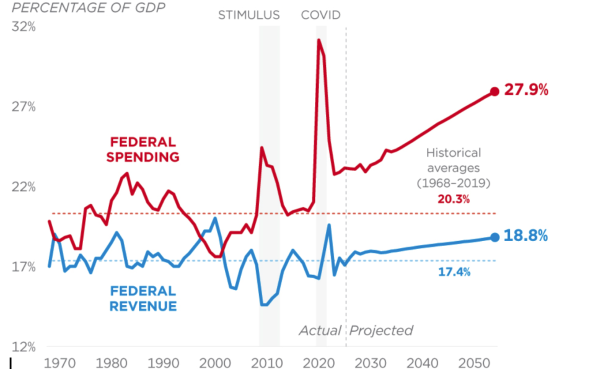Teachers’ blogs facilitate classroom growth, engage students in new ways
A gradual evolution in online social connectivity has allowed people from all walks of life to share their thoughts and ideas with the entire world. However, one such avenue in particular stands out from the rest: blogging. Whether it focuses on personal reflection, academic issues, or even the interminable questions of the universe, blogging is undeniably one of the most effective ways to reflect upon ideas and to receive instant feedback. Unsurprisingly, members of the Westminster faculty do not hesitate to take advantage of such a worthwhile resource. Running a variety of blogs, some long-standing and some just beginning to crawl, a number of Upper School teachers have integrated blogging into their daily lives.
A newbie to the blogosphere, physics teacher Roy Lovell recently launched his blog at the start of October. Lovell had contemplated illustrating his perception of physics through a textbook for quite some time, but he later saw the Internet as another manner in which he could express his ideas on the subject.
“When I was younger I wanted to write a textbook and I always thought that my presentation of physics was something I would like to share with a wider crowd,” he says. “But as the Internet evolved, it [starting a blog] has been something I’ve been thinking about for a long time and I finally did it.”
Even though his long-term goal of reaching a broader audience endures, for the time being Lovell hones in on a more immediate crowd: his AP Physics students. His blog, “Lovell Physics,” highlights and explains some of the more complex concepts that comprise the course.
“My short-term goal is directed towards my AP students. Seniors miss a lot of class so I take the trickier aspects of AP physics and put them on the site,” Lovell says. “Those [aspects] are something I understand clearly and would be an immediate benefit to my current students.”
Looking forward, Lovell views the whole process as still in an experimental phase and above all else, he aims for a direct impact in the classroom. Although his first two posts have yet to supplement a textbook, he continues to make steady progress with his newly formed blog.
As the new and upcoming principal of the Upper School, Ross Peters originally established his blog in July 2011 as a way to introduce himself to the Westminster community. Through a multitude of posts that included a few past speeches and insight into his educational philosophy, Peters was able to smooth over his transition to Westminster.
“Part of what I realized is that people have all sorts of questions about who the new guy is, and I kept thinking that this [blog] is a good way to accelerate that,” he said. “I moved to a new city and a new school where the community had a big demand for thinking about the way we teach and learn, and I knew this was a great way in [to the community].”
Although its original purpose was solely to integrate himself into the school, the blog soon blossomed into a whole lot more. With the title of “Ross All Over the Map,” Peters’s posts consist of exactly that: ideas from all areas of life, both in a literal and figurative sense. The range of his writings extends all the way to his very own poetry, and he delivers these posts literally from places all over the map, such as Hawaii or Italy. Irrespective of the location from which he writes, however, Peters draws on the blog primarily as a source of clarity in which he can organize his thoughts with the discipline of knowing that he is publishing to the entire online community.
“It [the blog] refines and centers my thinking about a number of topics,” he said. “It gave me my own vocabulary, my own voice, and even some practice talking about critical issues that have really been relevant since I arrived.”
As Peters branched out from the original introductory phase, he began receiving feedback from all kinds of people, including family, friends, the school’s community, and the larger educational community. On some of his poetic work he even garnered responses from people he had never even met before. Peters prefers blogging in particular because it functions as a virtual link between him and parents and allows him to view education from the perspectives of both students and parents. Through his blog, Peters has been able to become involved and grow as both an educator and a writer.
Sam Gough, a math teacher who teaches both Honors Algebra II and AB Calculus, created his blog in order to address a fundamental educational process: the art of questioning. He holds the steadfast belief that a key tool of comprehension is being able to question what one has learned.
“It is my philosophy that the way that you learn is by asking questions,” he said. “It’s as simple as that.”The title of the blog, “Questioning to Learn… Learning to Question,” also greatly underscores the principles behind Gough’s outlook on learning.
“The ‘Learning to Question’ is there because a lot of students don’t know how to ask the right question,” he said. “The right question is not, ‘will this be on the test?’ The question should be, ‘Do I understand the right process?’ or ‘Am I thinking about this the right way?’”
With posts centering on the learning process, Gough’s blog conveys great discernment on how to achieve the highest level of comprehension in the classroom. One recent post titled “I don’t get it… what happens now?” exemplifies exactly what Gough is looking to accomplish: helping the students become better learners. In his post, he offers a number of resources through which students can reach a higher level of understanding.
Although his main focus is his students, Gough hopes to develop a better connection with their parents as well. An easily accessible online source, the blog functions as a great device that fosters communication between everyone involved in the learning process. As more feedback from parents starts to flow into it, Gough can expand upon his simple yet significant philosophy: “Questioning to Learn.”
Physics teacher Megan Hayes-Golding has become a key member of the blogosphere because she runs not one, but two separate physics blogs. The first, dubbed “Physics 180” because she plans on posting once a day for the entire school year, remains fairly simple. Each day she posts a picture of the happenings of her physics class along with a short descriptive blurb, almost like an online journal that captures the essence of each day. Her second blog, which she has been running for eight years, details her teaching on a more complex and personal level. Simply titled her name, “Megan Hayes-Golding,” the blog serves a more thought-provoking purpose.
“It is a reflective blog for my teaching practice. Stuff that goes well, stuff that doesn’t go well, I put it out there,” she said. “Folks I know through online teaching communities will give me advice or say thank you for stuff I share.”
Using the blog to reflect upon her teaching methods, Hayes-Golding views the online math and science community as a way to revise and build upon her own ideas. With a constant influx of feedback from educators everywhere, ranging from places like England and Japan all the way to New Zealand, Hayes-Golding visualizes these responses as the perfect way in which to shape what she calls her “half-baked” ideas, or ideas that are not fully formed. “I will post a ‘half-baked’ idea or something that I’ve created, and somebody will come along, take it, and post on their blog how they changed it or how they used that idea in their classes,” she said. “So from that, it’s this iterative improvement process where I can share my ‘half-baked’ with teachers everywhere and somebody run with it and improve upon my ideas.”
Although the serious and reflective side of the blog substantiates her posts, Hayes-Golding does not fail to contribute to the more fun side of her blog. Recently she posted about a study that attempted to determine the plausibility of whether or not Spider-Man could have stopped the hurtling subway train with just spider silk in the movie Spider-Man 2. Even though Hayes-Golding understands the gravity of physics and the importance of her own self-improvement, she appreciates the more recreational applications of physics as well.
Straying from the norm of a writing-focused blog, photography teacher Kristin Brown runs a Tumblr about photography. Tumblr, a blogging platform that is used predominantly to upload pictures, has become increasingly popular in the past few years and appears to be the perfect tool for artists to share their own work. Due to this fact, the art education community thrives on Tumblr, and Brown takes advantage of the great resources Tumblr provides to teachers.
“Basically you can share lesson plans, hash out ideas, and can also post when you have problems,” she said. “It’s like having an educational community on the Internet.”
Reblogging, a concept unique to Tumblr, allows users to repost other people’s ideas via their own blogs, causing a much more effective spread of information. Through her online interactions with teachers, such as reblogging, Brown cannot only uncover new methods or lessons to incorporate at school but can also further develop her own plans.
“Lately I’ve been reblogging a lot of stuff,” she said. “It’s good to find other lessons that I like, so I can share them with other people and even figure out how to integrate them into the classroom.”
Along with formulating lesson plans for her classes, Brown also imparts both her work and her students’ work to the Tumblr universe. Just last year she posted some photos of the t-shirts her graphic design class created, which included a t-shirt with the image of computer science teacher Elliot Kaplan’s winking face with the caption, “Kaplan 2036 Robocracy.” By blogging about her and her students’ art pieces, Brown hopes to inspire other teachers while continuing to gain inspiration herself.
With almost seven years of blogging practice behind him, chemistry teacher Adrian Dingle has truly created what Roy Lovell dubs a “blogging empire.” As a subset of his overarching “Chemistry Pages” website, which contains all the information and resources covering all domains of chemistry, Dingle’s blog contains the same sole focus: chemistry. He envisions the blog as a kind of online blank slate in which he can elucidate anything that may be vague or unclear, such as the changes in the new AP Chemistry Exam.
“For me it’s about convenience; it’s like a digital notebook,” he said. “I write the blog as much for myself as I do for anybody else simply because it allows me to clarify my thinking.”
Across this lengthy seven-year span, Dingle’s blog has expanded greatly to cover innumerable topics, such as his recent chemistry book, The Periodic Table: Elements with Style! or even the chemistry behind brewing beer. Regardless of the focus of each post, Dingle utilizes the blog chiefly for self-reflection and self-clarification more than anything else.
“I never wrote the blog with the expectation of anybody reading it,” he said. “For me, it’s a very selfish thing, but I just happen to be putting it in a public domain.”
Although he sees the endeavor as selfish, Dingle’s blog still makes an impact in the chemistry community. Whether it brings light to troubling topics for students in the classroom or chemistry teachers around the world, his blog continues to shed light on chemistry.




